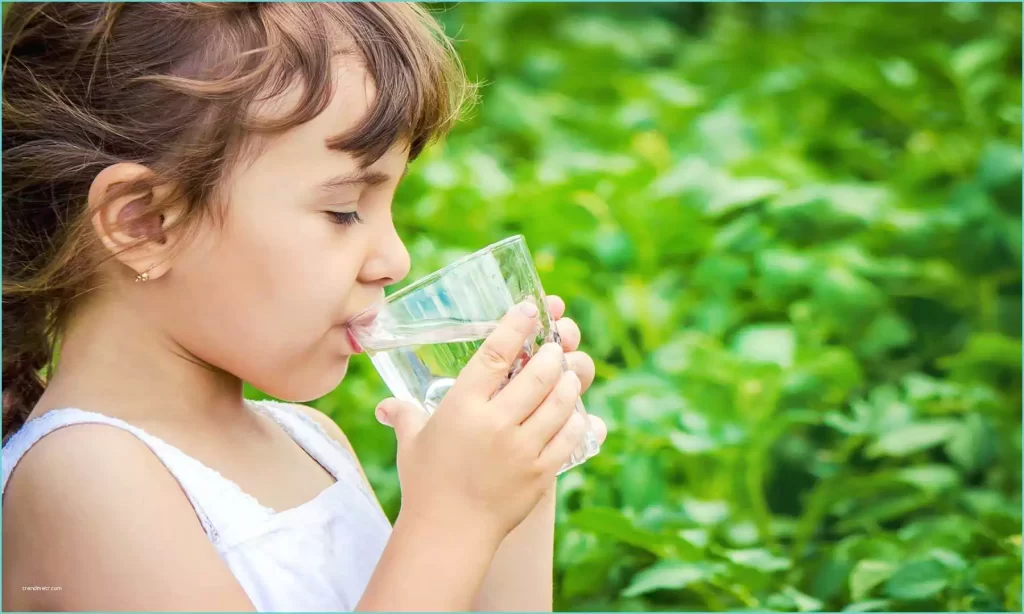
Share this
Did you know that water is essential for your kidney health? And did you know that you can actually develop kidney failure just from being dehydrated? Well, it’s true, and that’s because water is essential for kidney health. So today we’re gonna talk about it. I’m going to give you 7 benefits of drinking water for healthy kidneys and other organs.
The Importance Of Drinking Water
You would be shocked to know how many patients I have actually diagnosed with kidney failure, just from being dehydrated. It’s true. Now, the good thing is that when I’m able to make that diagnosis early on, oftentimes the kidney failure is reversible. However, if this dehydration or volume depletion has been severe or over a long period of time, I’ve actually had to put patients on dialysis just because they did not have enough water intake. Again, water is absolutely essential for kidney health. And it’s not just essential for kidney health, it’s also essential for other organs. Every cell, every tissue, every organ in your body needs water in order to function properly. You see, the human body is made up mostly of water, about 60 to 70%. You need water to eliminate waste properly. You need water to maintain good blood pressure. You need water in order to have good circulation. You need water to lubricate your joints. You need water. And so that’s what we’ll be talking about today. The benefits of drinking water for kidney health and your other organs as well.

How Much Water Should Drink In A Day?
So here’s the magic question, exactly how much water should you drink a day? Well, there’s no one-size-fits-all answer to that question because the amount of water intake that’s right for you depends on multiple factors, including your age, your physical activity, how much you sweat, how much urine you make, how heavily or quickly you breathe. And so it really varies from person to person and you should consult your physician to find out how much water you should be drinking.
But just to give a general answer to that question, according to the United States Academies of Sciences, Engineering, and Medicine, the average man should be taking in 15.5 cups of water a day or about 3.7 liters. And the average woman should be taking in about 11.5 cups of water per day or 2.7 liters. Now, that being said, while most of your water intake will come from drinking, about 20% of your water intake comes from the foods that you eat, especially really watery foods like spinach or watermelon. So if you think about it, just in terms of drinking, then you can round that number off to about three liters a day for most people or anywhere from two to three liters. A typical water bottle is about 16 ounces. So you should be drinking on average, anywhere from 4 to 6, 16-ounce water bottles a day. But again, how much water is right for you to take in, depends on you as an individual. So be sure to consult with your physician.
Water Intake Restrictions
Now, one very important point is that for some people, they should not be drinking that much water. In fact, if you have certain chronic medical conditions, you may actually have to restrict your water intake. For example, if you have kidney failure or end-stage renal disease, or end-stage kidney disease, then you may have to limit the amount of water that you take in. Same thing with congestive heart failure or chronic lung disease. With some of these medical conditions, you may actually need a water restriction. So again, you must talk to your doctor.
Can You Drink Too Much Water?
Another question I get a lot is, can you drink too much water? And the answer is, yes. Now, if you are a healthy person with normal kidney function, it’s a little more difficult to do, but it is possible. You can take in too much water and actually dilute your blood, and get a condition called hyponatremia or low salts in the blood. If this happens, but it can lead to lethargy or extreme tiredness, it can lead to brain swelling and even death. So again, you have to be careful and you have to keep the conversations going with your physician.

How To Know If You’re Drinking Enough Water
So how do you know if you are actually drinking enough water? You may be thinking, you know, I never feel thirsty, my skin is smooth and hydrated, I drink enough water, but how do you know? Well, there are certain hints that you can get from your body, certain symptoms. If you are drinking enough water, then you should be using the restroom. You should be urinating pretty frequently, maybe seven to 10 times a day, or making about 1.5 liters of water a day. Also, your urine should be almost colorless or very pale yellow if you’re getting enough water.
So how do you know if you’re not drinking enough water? Well, you can certainly feel thirst, but quite honestly, by the time you feel the sensation of thirst, you’re probably already behind, you’re already dehydrated. So you want to stay on top of things and stay hydrated. So you don’t even get to the point of feeling thirst. Other hints or symptoms that may let you know that you’re not drinking enough water, is your urine. If the urine becomes dark-colored or amber-colored, you may be dehydrated. Also, you can get a headache or maybe a fast heart rate or tachycardia. You may even just feel really, really tired or have low energy. So there are hints to not drinking enough water, but again, you want to make sure that you stay ahead of the game, and you stay hydrated because there are so many benefits of drinking water for your kidney health. Be sure to watch my YouTube video on 10 Ways to Keep Your Kidneys Healthy, after you’re finished with this article.
7 Benefits Of Drinking Water For Healthy Kidneys
1. Drinking water can prevent kidney failure
As I mentioned, I have actually had to put patients on dialysis due to severe volume depletion or severe dehydration. What happens is that when you don’t have enough water in your system, and the kidneys feel as though they are dehydrated, you develop a condition called prerenal azotemia. If that water intake is not resolved right away, then that prerenal azotemia can progress and take you to a condition that leads to a kidney failure, that can cause you to make decreased or no urine and have other issues as well, even outright kidney failure that requires dialysis. So drinking water helps to prevent kidney failure.
2. Drinking water helps to prevent kidney stones
And let me tell you, kidney stones are something you do not want to be a part of. It’s a very painful and unpleasant experience from what my patients tell me. And here’s why a major risk factor for developing kidney stones, is not drinking enough water or being dehydrated. You see, kidney stones develop if your urine is very concentrated. If you have these particles or solids in your urine that are able to stick together because the urine is so concentrated. And how does urine get concentrated? Well, if you’re not drinking enough water. And so you can develop kidney stones, which can pass, be painful, and dreadful when really a huge way to prevent them is by staying well hydrated.
3. Maintain a healthy blood pressure
Drinking water helps to maintain your blood pressure. If you are very dehydrated or volume-depleted, then you can develop low blood pressure or hypotension, which can also lead to kidney failure.

4. Helps to maintain a good circulation
Drinking water helps to maintain good circulation, and so that you can deliver the proper oxygen supply to your tissues. Your blood is made up of 90% water. And what’s the purpose of blood? Well, blood has these red blood cells, which are these little donut-shaped cells, and they actually are your body’s carriers of oxygen. Yes, they’re like little cars that carry oxygen to all of your tissues. So when you have enough water in your system, then your circulation is able to flow and you have a better chance of getting all of your tissues, and your organs properly oxygenated. If you’re dehydrated, however, then you can have sluggish circulation.
5. Regulate your digestion
Drinking water can help to regulate your digestion, yes. In order for you to have good digestion and to have nice, normal bowel movements, and not have constipation, you also need to be well hydrated.
6. Weight loss
Now I know you’re listening. Drinking water can give you the health benefit of promoting weight loss. You see, when you stay hydrated, especially if you drink your water before your meals, then that helps you to get full faster, and it helps you to eat less and to prevent overeating. The other thing about drinking water that can help to promote weight loss, is that water has no calories. And so if you’re drinking water, instead of drinking sweet drinks that have a lot of sugar or sodas that have a lot of sugar, then you’re going to decrease your caloric intake. And this can help with weight loss. Maintaining a healthy weight and not being a person with obesity, also indirectly helps to prevent kidney failure, because obesity is a risk factor for kidney failure.

7. Drinking water can help to lubricate your joints
Drinking water helps to lubricate your joints, and who doesn’t want lubricated joints. You see the cartilage that’s in between your bones and in between your backbones is made mostly of water, 80%. And so when you’re well-hydrated, that helps you to move more and it helps to absorb the shock, and so you don’t have as much joint pain. Now, how does this help your overall health? Well, number one, you have a higher quality of life and you’re not walking around with a lot of joint pain, and you’re able to exercise more. When you have nicely lubricated joints, you’re able to move.
Best Bottled Water For Kidneys
Now I want to touch on bottled water. Oh my goodness, I get this question quite a bit. People coming in with these very, very, very expensive and fancy bottles of water, wanting to know if drinking bottled water will be the key to having great kidney health. So let me talk about it for just a bit. Now you do not have to drink bottled water to be healthy. You can drink tap water, especially if you are in a part of the world where that tap water is regulated, it’s not contaminated and it’s safe.
Tap water is actually regulated by the EPA. Unfortunately, there are some areas of the world and areas of the country where the water can be contaminated or have high lead. One thing you can do is invest in a water filter to make sure that your tap water is clean. But as for bottled water, most definitely bottled water is very convenient. You’re able to grab those bottles of water and take them wherever you need to take them and drink, that’s certainly a benefit.

Also having bottled water can certainly help in times of natural disaster, where perhaps there’s an emergency and you have no running tap water. The bottled water tends not to expire. Another benefit from drinking bottled water is that their decontamination systems and their filtration systems tend to be very controlled. You’re able to look or research, and you can find out if they’re using an ionization system, or if the water is filtered through natural rocks. You’re able to look and investigate to see if there are certain additives in the water such as electrolytes. And here’s one point, for some water that has a lot of electrolytes added. If you are someone who has kidney failure or chronic kidney disease, or some other issue that has your electrolytes where they’re not naturally balanced, then you have to be careful. Because, for example, if you have kidney failure, you don’t want to drink water that has potassium added, because most patients with kidney failure have a potassium restriction. So that’s something to be very careful of when you’re researching your bottled water.
Bottled Alkaline Water
Also, some waters may be infused with calcium or magnesium. If you’re a person who has hypercalcemia or high calcium in your blood, you don’t want water that has extra calcium. My point is you have to be careful of the bottled water that you are drinking. Alkaline water, that’s something that has been very, very popular. You have certain waters that have a pretty high pH, meaning that they’re very alkaline. They may have a pH of 9.5 or higher. Now, if you have normal functioning kidneys, then your body is going to regulate, and you’re going to have a good pH balance, where you don’t necessarily need alkaline water.
If you are someone who is acidic, or if you have metabolic acidosis, then perhaps the alkaline water will be helpful to you. Again, consult with your physician. My point is alkaline water is not necessarily for everyone. And so you want to do your research, talk to your doctor and find out if it’s right for you. The other thing you want to do when thinking about the bottled water that you’re drinking, is finding out the carbon footprint, find out if the bottles are recyclable, or if they’re going to contribute to the litter on the earth and climate issues. Find out if the bottles have BPA or certain toxins or substances that may be in the water that you drink. And remember that tap water tends to have fluoride in it, and sometimes the bottled water does not, so you want to do that research. The point is that there is no one best bottled water for everyone. You want to do your research and find out which bottle of water is right for you. And you don’t have to have bottled water to be healthy.
I love bottled water, but I don’t necessarily have to have the most expensive bottle of water with the fancy bottle. No, I can run right around the corner to the grocery store, get myself some cases of very inexpensive water, and it’s convenient. I can keep it at work, I can keep it at home, I can have it in my car, and I can keep it stored in case of natural disasters
Conclusion
If you found this information on the benefits of drinking water for healthy kidneys and other organs, to be helpful, please be sure to share this article with the people you care about. Also, make sure you subscribe to my YouTube channel if you have not done so already. And hit that notification bell, so you’ll be among the first to know when I release new medical content. And also please head on over to my Instagram @dr.frita, to see what I’m up to in my everyday healthy, happy life. Do your best to live your healthiest, happiest life.
How much water should you drink if your kidneys are failing?

The recommended amount of water for people with kidney failure depends on the stage of their disease.
While drinking more water can help boost kidney function, there is no evidence that suggests that an increase in water consumption will prevent the progress of kidney failure.
The National Kidney Foundation recommends for people with stages I and II chronic kidney disease (CKD) to consume 8 glasses of water per day and those with stages III, IV, and V CKD to limit water consumption. It is best to discuss your water and salt consumption with your doctor.
Under normal circumstances, daily water requirements are based on factors such as age, climate, and exercise intensity, as well as conditions such as pregnancy, breastfeeding, and illness.
What are the main functions of your kidneys?
Kidneys are a pair of bean-shaped organs located below the rib cage on either side of the spine. Their main functions include the following:
- Water balance
- Electrolyte balance
- pH balance
- Removal of toxins
- Excretion of waste products
- Blood pressure control
- Production of erythropoietin, which stimulates red blood cell production
- Activation of vitamin D
Kidney failure or end-stage renal disease occurs when the kidneys are unable to filter toxins and waste products, working less than 15% of their normal capacity.
Chronic renal failure causes
A gradual loss of kidney function may be caused by:
- Uncontrolled diabetes
- High blood pressure
- Chronic glomerulonephritis
- Polycystic kidney disease
- Kidney stones
- Nephrotic syndrome
- Interstitial nephritis
Acute renal failure causes
A sudden loss of kidney function occurs due to the following:
- Pre-renal causes
- Dehydration due to excessive diarrhea, vomiting, and sweating
- Hypovolemia due to heavy blood loss
- Decreased fluid intake
- Medications such as diuretics
- Obstruction in the renal artery
- Renal causes
- Sepsis due to infections and inflammations
- Medications such as nonsteroidal anti-inflammatory drugs (NSAIDs) and antibiotics
- Rhabdomyolysis
- Multiple myeloma
- Systemic lupus erythematosus
- Hemolytic uremic syndrome
- Post-renal causes
- Prostatic hypertrophy or prostate cancer
- Kidney stones
- Obstruction of the bladder or ureters
- Sudden blood flow loss
- Heart attack
- Burns
- Liver failure
- Allergic reactions
- Metal poisoning
-
What are the signs and symptoms of kidney failure?
Kidney failure can be asymptomatic initially, and if left untreated, can lead to life-threatening conditions:
- Whole body edema (swelling)
- Inability to pass urine or very little urine output
- Shortness of breath
- Weakness
- Lethargy
- Loss of appetite
- Abnormal heart rhythms
- Anemia
- Nausea
- Fatigue
- Hyperkalemia (high blood potassium level)
- Hypocalcemia (low blood calcium level)
- Metabolic acidosis (excessive amount of acids in the body)
- Congestive cardiac failure
- Uremia (high blood urea level)
- Drowsiness
- Itchy and dry skin
- Muscle cramps
What is the treatment for kidney failure?
If you have kidney failure, a healthy lifestyle, diet modifications, regular follow-ups, and appropriate medications may improve your quality of life and extend your lifespan:
- Dietary modifications such as the DASH diet (low-sodium) and renal diet (low-sodium, low-protein, and low-potassium, with controlled water intake)
- Managing blood pressure and diabetes
- Antibiotics for infections as needed
- Corticosteroids for immune-related conditions (nephrotic syndrome)
- Blood transfusions for anemia
- Intravenous fluids, if needed
Acute renal failure or end-stage renal disease is the most severe stage of kidney failure, with no cure. The only treatment options are:
- Hemodialysis: Machine that regularly (three to four times per week) filters the blood to remove toxins and waste products
- Peritoneal dialysis: Treatment that uses a catheter through the abdominal lining for blood filtration
- Kidney transplant: Only long-term solution in most cases






